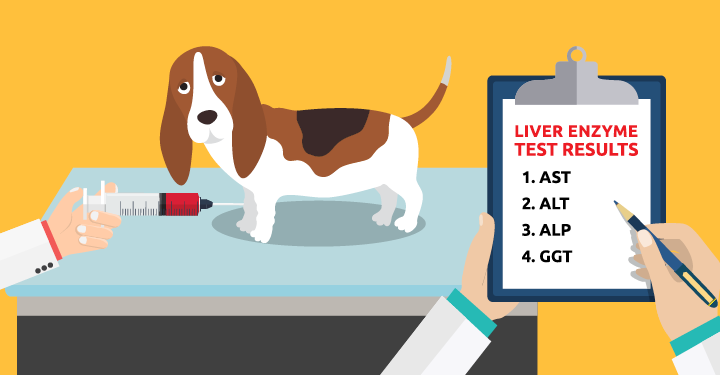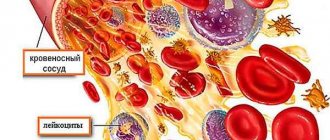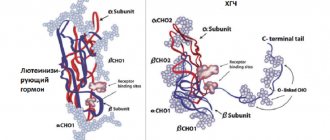Alkaline phosphatase is an enzyme that is found in all tissues of the human body, but to a greater extent in the liver, bones and placenta. When at healthy levels, alkaline phosphatase protects your intestines from harmful bacteria and aids digestion. However, high levels of this enzyme in the blood usually indicate problems with the liver, kidneys or bones. Read on to learn about the causes of elevated alkaline phosphatase levels and how to lower these levels in ways that are natural to your body.
The article is based on the findings of 42 scientific studies
The article quotes authors such as:
- Department of Neurology, Cha Bundang Medical Center, Cha University, South Korea
- Kwangtung Catholic University St. Mary's International Hospital, Incheon, South Korea
- Division of Nephrology, Department of Internal Medicine, Virginia Commonwealth University Medical Center, Richmond, USA
- Centro de Investigación Biomédica en Red de Enfermedades Hepaticas y Digestivas-CIBERehd, Campus de Cartuja, Spain
Please note that the numbers in parentheses (1, 2, 3, etc.) are clickable links to peer-reviewed scientific studies. You can follow these links and read the original source of information for the article.
What is alkaline phosphatase?
Alkaline phosphatase is an enzyme that is found in all cells of our body, but is mainly concentrated in the bones , kidneys , liver , intestines and placenta . It exists in different forms depending on where it originates. ()
When found in cells such as the liver and biliary tract, alkaline phosphatase catalyzes certain biochemical reactions in these cells. When cells are destroyed, phosphatase enters the blood, but it does not work in it. Gradually, all our cells are renewed, being destroyed in the process, so the blood constantly contains a certain level of alkaline phosphatase. But if massive cell death occurs, the amount of alkaline phosphatase in the blood increases greatly. What often happens in various diseases, for example, cholestasis, liver cancer, bone metastases or bone fractures.
For example, circulating alkaline phosphatase is known to be a reliable and independent predictor of all-cause mortality in the general human population and in patients with chronic kidney disease (CKD).
Targeting alkaline phosphatase levels - a new treatment strategy to reduce blood vessel calcification in chronic kidney disease and type 2 diabetes (source)
The following alkaline phosphatase isoenzymes are found in humans and other mammals:
- ALPI—intestinal
- ALPL—in liver, bones and kidneys
- ALPP—placental
Some of the main functions of alkaline phosphatase include protecting your intestinal tract from bacteria, helping with digestion, breaking down fats and some B vitamins, and promoting bone formation. ()
Most doctors order an alkaline phosphatase test to assess the health of a patient's bones and liver , but many promising studies are emerging that support the positive role of this enzyme in gut health .
Functions of alkaline phosphatase
Supports brain function
You need to maintain a healthy amount of alkaline phosphatase to keep your brain functioning at its best. Elevated levels of this enzyme are associated with inflammation of small blood vessels in the brain, while lower levels may be beneficial for the brain. (, )
One of the isoenzymes of tissue nonspecific alkaline phosphatase helps the generation of new neurons , enhancing neurogenesis in both children and adults. Another isoenzyme, intestinal alkaline phosphatase, promotes healthy brain-gut communication by reducing inflammation and balancing microflora in the intestinal tract. ()
Maintains healthy teeth and bones
Alkaline phosphatase plays an important role in the development of bones and teeth , as this enzyme is necessary for their mineralization. During mineralization, substances such as calcium and phosphorus are deposited in bones and teeth to keep them strong. ()
Supports blood cholesterol levels
Pregnant women show higher alkaline phosphatase activity in the blood. Both triglyceride and total cholesterol levels rise in parallel with alkaline phosphatase levels, so cholesterol values correlate with the activity of this enzyme. ()
Preparing and conducting analysis
Alkaline phosphatase can also be elevated in healthy people. Such cases include:
- Consumption of alcoholic beverages that caused alcohol intoxication of the body;
- Pregnancy, last trimester;
- Medicines with hepatotoxic side effects.

What does it mean? First of all, before taking the test, you need to take measures to prepare the body. This is the only way to trust the results obtained. Such events include:
- Abstinence from food for at least 8 hours;
- Elimination of alcohol and alcoholic beverages from food consumption for 2-3 days;
- Do not smoke 30 minutes before handing over the biomaterial;
- Avoid physical strain, including sports, 24 hours before.
- If you cannot stop taking medications, then you should inform the medical professional who takes the test. The attending physician should also be notified.
Blood will be taken from a vein for testing.
Properties of intestinal alkaline phosphatase
There are several types (isoenzymes) of alkaline phosphatase, but the ALPI type found in the intestines is the most studied to date. Intestinal alkaline phosphatase is produced by enterocytes (intestinal epithelial cells).
Modern animal studies have demonstrated the very important role of intestinal alkaline phosphatase, which is naturally present there. The enzyme interacts with the intestines, the food we eat, and the microbes found in our bodies.

Intestinal alkaline phosphatase IAP regulates the homeostasis of this organ (source)
Additionally, several animal and human studies have demonstrated the effectiveness of alkaline phosphatase supplementation. However, these studies have been limited and more research is likely needed.
Unlike other types of alkaline phosphatases, intestinal alkaline phosphatase is primarily associated with the intestinal mucosa, and approximately 1-2% may be present in the blood. ()
Some studies show that curcumin increases the level of intestinal alkaline phosphatase activity in the cells of this organ. ()
Protects against bacterial infection in the intestines
Many harmful gram-negative bacteria produce lipopolysaccharides (LPS), which can cause either an acute episode of infection (sepsis) or chronic inflammation.
Intestinal alkaline phosphatase is able to remove phosphate groups from these liposaccharides (LPS), which reduces their inflammatory effects . ()
In addition, intestinal alkaline phosphatase can also prevent bacteria such as Salmonella typhimurium and Clostridium difficile from entering the intestinal lymph nodes. ()
In a study on human intestinal cell lines, it was found that intestinal alkaline phosphatase can control cellular resistance to LPS in harmful bacteria. It is known that the presence of LPS in the blood can stimulate inflammatory processes in the body. ()
Helps restore intestinal microflora after taking antibiotics
Supplementing intestinal alkaline phosphatase to mice that were given antibiotics to fight salmonella and clostridia helped these mice recover their gut microflora more quickly.
Mice given an oral calf intestinal alkaline phosphatase supplement during antibiotic treatment had fewer infections and lower mortality compared to mice not given the supplement. ()
Helps restore intestinal integrity in cystic fibrosis
Cystic fibrosis impairs intestinal barrier function and increases intestinal permeability, which can lead to intestinal damage. It also causes a decrease in intestinal alkaline phosphatase activity. ()
In mice with cystic fibrosis, supplementation of intestinal alkaline phosphatase was associated with improved protection against intestinal permeability . This enzyme also reduced bacterial overgrowth in the small intestine by more than 80%. ()

ALKALINE PHOSPHATASE (IAP) IN THE INTESTINE PROTECTS THE BODY FROM THE PENETRATION OF WASTE PRODUCTS OF HARMFUL BACTERIA INTO THE BLOOD
Removes toxic microbial chemicals
Intestinal alkaline phosphatase removes phosphate groups from toxic microbial molecules such as leftover DNA and parts of harmful bacteria. This helps protect the body from inflammation. ()
Slows down the absorption of fats in the intestine
Mice without intestinal alkaline phosphatase absorb fat very quickly. As a result, these mice exhibit higher blood cholesterol levels and gain weight faster than normal mice. ()
Reduces kidney damage from bacterial infection
In a clinical study of people with a severe bacterial infection (sepsis) that leads to acute kidney injury, administration of alkaline phosphatase through the blood improved overall kidney function. () This fact speaks of intestinal alkaline phosphatase as a promising substance for protecting the kidneys during sepsis.
Protects against type 2 diabetes
Mice deficient intestinal alkaline phosphatase can develop type 2 diabetes. Oral intestinal alkaline phosphatase supplementation prevents metabolic syndrome in mice fed a high-fat diet. ()
In another study, researchers examined the stool of 200 patients with diabetes and 400 people without diabetes. They found that compared to healthy controls, diabetic patients had lower levels of intestinal alkaline phosphatase activity. ()
In another study, intestinal alkaline phosphatase was good protection against type 2 diabetes even in obese patients. ()
Reduces inflammation in the intestines
Supplementation of intestinal alkaline phosphatase reduces levels of inflammatory proteins (TNF-alpha, IL-5, and IL-1beta) in infants suffering from increased intestinal cell death (necrotizing enterocolitis). However, the injection did not cure this disease, but only reduced its manifestations. ()
Mechanism of action
For many phosphorus, the three-dimensional structure of their molecules has been established and detailed chemistries have been proposed. mechanisms of catalytic action. It is assumed that several different groups localized on the surface of the enzyme molecule in the active center take part in the process of the catalytic act. One of these enzymes is glucose-6-phosphatase. This enzyme, associated with the microsomal fraction of cells, along with the hydrolysis of glucose-6-phosphate, catalyzes the transfer of a phosphate group from inorganic pyrophosphate (see Phosphorus) to glucose (see), as well as the exchange reaction between glucose and glucose-6-phosphate. Studies of the kinetics of hydrolytic, transferase and exchange reactions (see Kinetics of biological processes) have shown that their mechanism is in the nature of a two-stage transfer, in which a phosphoenzyme, or phosphoryl enzyme, is formed as an intermediate compound. In this case, the transferred phosphate group in the enzyme molecule binds to the histidine residue (see). To exhibit activity, glucose-b-phosphatase requires a divalent metal ion. In accordance with the proposed (with some simplification) reaction mechanism, the metal ion binds to the negatively charged phosphate group of the substrate, and the reactive histidine residue, which has nucleophilic properties, binds to the phosphorus atom, which leads to the formation of a phosphoenzyme. The latter then either undergoes hydrolysis or reacts with the nucleophilic groups of acceptor molecules (eg, with the hydroxyl groups of sugars) to form the final reaction products and release the phosphate-free enzyme.
Normal alkaline phosphatase levels
Typically, a total alkaline phosphatase (ALP) blood test is performed to detect all types of this enzyme. And it is used to diagnose bone and liver disorders.
If your total alkaline phosphatase level is elevated, your doctor may order tests to determine if the specific type of alkaline phosphatase is elevated.
The normal range for total alkaline phosphatase in the blood is 30-140 U/L , although this may vary depending on the laboratory. It should be noted that children and pregnant women may show significantly higher levels of the enzyme in their blood and have their own standard of a “normal” range. ()
When the liver does not function properly, alkaline phosphatase enters the bloodstream and its levels increase significantly. In addition, any condition that affects bone growth or causes increased bone cell activity can increase alkaline phosphatase levels in the blood. For this reason, this test is commonly used to diagnose liver/gallbladder diseases and bone disorders. ()
Higher ALP levels may be observed in people with blood types 1 and 3. ()
Substrate specificity
Most F. are among the enzymes (see) that have a relatively broad substrate specificity. However, some F. are distinguished by a limited range of converted substrates. These are, first of all, enzymes that act on phosphorus derivatives of sugars, as well as nucleotidases (see), which break down mononucleotides. In many tissues, enzymes are presented in multiple forms that differ in their catalytic and physical properties (see Isoenzymes). Phosphatases from different biol. sources, differences in substrate specificity and catalytic activity are also observed. Some enzymes show similarities with enzymes belonging to other groups. Thus, there are phosphorylations that can catalyze transphosphorylation reactions (see) or cleave the acid-anhydride pyrophosphate bond (see Pyrophosphatases). For example, glucose-6-phosphatase (D-glucose-b-phosphate phosphohydrolase; EC 3.1.3.9) is very similar in substrate specificity and catalytic properties to phosphotransferases (EC 2.7.1.62 and 2.7.1.79), as well as inorganic pyrophosphatase (EC 3.6 .1.1).
Diseases for which elevated alkaline phosphatase levels are diagnosed
If it is unclear why total alkaline phosphatase levels are elevated, additional isoenzyme studies using electrophoresis can confirm the source of the increase.
Bone phosphatase (which is localized in osteoblasts and extracellular layers of newly synthesized matrix) is released into the blood by an as yet unclear mechanism.
Placental alkaline phosphatase is often elevated in seminomachi and active forms of rickets.
The list of diseases in which the level of total alkaline phosphatase increases:
- Bile duct blockage
- Cholecystitis (inflammation of the gallbladder)
- Fractures and cracks of bones
- Bone tumors
- Bone metastases
- Osteomalacia
- Osteoporosis
- Hepatitis
- Cirrhosis
- Liver cancer
- Gallbladder cancer
- Prostate cancer
- Chronic kidney disease
- Acute cholecystitis
- Myelofibrosis
- Leukemoid reaction
- Lymphoma
- Paget's disease
- Sarcoidosis
- Hyperthyroidism
- Hyperparathyroidism
- Hodgkin's lymphon
- Wilson's disease
- Myocardial infarction
- Ulcerative colitis
- Pregnancy
- Alcoholism
Other Causes of Elevated Alkaline Phosphatase Levels
While alkaline phosphatase may not necessarily cause harm to the body itself, elevated levels of this enzyme have been linked to cancer , bone , liver , and kidney . () Additionally, lifestyle factors, medications, and some supplements can increase alkaline phosphatase levels.
Birth control pills
Birth control pills can raise alkaline phosphatase levels many times above the normal range. ()
Exercise stress
Exercise increases bone alkaline phosphatase levels after thirty and fifty minutes of moderate to vigorous exercise in male cyclists, but these values quickly return to normal. ()
Thyroid hormones
Thyroid hormones stimulate alkaline phosphatase. (, ) Elevated levels of alkaline phosphatase also correlate with the severity of hyperthyroidism . ()
Colon cancer
Alkaline phosphatase levels are often high in patients with metastatic colon cancer . Elevated alkaline phosphatase values correlate with increasing cancer stage and may indicate that the cancer has spread to the liver. ()
Mammary cancer
Women with breast cancer had elevated levels of alkaline phosphatase compared to healthy women. An increase in enzyme activity also indicates that metastases have occurred and have spread to either the bone or the liver. (, )
Alzheimer's disease
Patients with Alzheimer's disease have higher levels of alkaline phosphatase compared to healthy patients. The higher the alkaline phosphatase activity, the lower the brain function in these people. ()

List of basic tests to assess liver health: ALT, AST, alkaline phosphatase, GGT (Gamma-glutamyltransferase
Vitamin D deficiency
Vitamin D deficiency is usually accompanied by increased levels of total alkaline phosphatase in the blood. However, this is not the best indicator for identifying a deficiency of this vitamin. ()
Heart diseases
Elevated levels of alkaline phosphatase are associated with a higher risk of developing cardiovascular disease .
In a prospective study of more than 3,000 older men, higher alkaline phosphatase levels predicted a greater risk of heart attacks, strokes, and increased mortality. ()
Liver problems associated with celiac disease
Celiac disease is an autoimmune disease in which the immune system attacks the lining of the intestines when gluten . In cases of uncontrolled celiac disease, when patients continue to consume gluten in food, other liver and biliary tract diseases may occur. Elevated levels of alkaline phosphatase are associated with these two disorders. ()
Sickle cell anemia
Sickle cell anemia is associated with high levels of alkaline phosphatase. Higher levels of alkaline phosphatase correlate with worsening bone and other tissue health in patients with sickle cell disease. (, )
In patients with sickle cell disease, higher levels of alkaline phosphatase are associated with vaso-occlusive crises. ()
Epilepsy
Children with epilepsy show higher levels of alkaline phosphatase compared to children without the condition. ()
Influencing factors
Intravenous injections of albumin; sometimes there is an increase (for example, 10 times), stable for several days (placental source); total parenteral nutrition.
Reduced when blood is collected using EDTA (ethylenediaminetetraacetic acid), fluoride, or oxalate anticoagulants as a preservative.
Promotion
Increases (by 30% or more) when the blood sample is stored at room temperature or when refrigerated.
Bone source - increased calcium accumulation Hyperparathyroidism. Paget's disease, or deforming ostosis (exceeding the norm by 10-20 times). An elevated ALP level in the absence of liver disease most likely indicates Paget's disease or metastatic prostate carcinoma. It increases with metastatic bone lesions only in the case of prostate carcinoma. Tumors of bone tissue, osteoblastic (osteogenic sarcoma, metastatic carcinoma). Osteogenesis disorders (also associated with bone trauma). Family history of bone development disorders. Osteomalacia, rickets. Polyostotic form of fibrous dysplasia. Osteomyelitis. Late pregnancy; returns to normal levels 20 days after birth. In children under 10 years of age and during puberty, a sharp increase in alkaline phosphatase levels is possible: 3-4 times higher than in adults, and after 20 years the levels are the same as in adults. Taking ergosterol. Hyperthyroidism. Transient hyperphosphatemia in infants. Hodgkin's disease. Slow healing of bone fractures (slight increase). Liver disease: biliary tract obstruction (eg, stones, tumors, primary biliary cirrhosis); sensitive indicator of intrahepatic and extrahepatic cholestasis. A simultaneous increase in alkaline phosphatase and 5′-nucleotidase is observed only in diseases of the biliary tract. If 5-nucleotidase is not elevated, then the cause of increased alkaline phosphatase may be, for example, diseases of the skeletal system. Infiltration of the liver (for example, amyloidosis, leukemia). Cholangitis (eg, infection, poisoning). Hepatomegaly in heart failure. Drug hepatotoxicity (eg, chlorpropamide)
How to reduce alkaline phosphatase levels?
Manage your condition that causes elevated alkaline phosphatase levels
An increase in alkaline phosphatase is usually a symptom of some disease . Therefore, to reduce your alkaline phosphatase levels, you need to treat the underlying condition. For example, if your doctor determines that your high titers of this enzyme are caused by liver disease, he will prescribe you a medicine to treat your liver. High alkaline phosphatase levels will normalize on their own after liver disease reduces in severity or is treated.
Find out if your medications cause an increase in alkaline phosphatase
Some medications have the side effect of increasing phosphatase levels. If you experience a side effect like this, your doctor will likely ask you to stop taking one or more of these drugs for a certain amount of time (for example, a week) and then ask you to take a new blood test. If your alkaline phosphatase levels do not decrease, you may need to stop taking another medication for a week to determine if there is a drug cause for the enzyme increase.
Procedure
To carry out the analysis, it is necessary to collect biological material. The study requires 5-10 ml of venous blood.

To obtain correct results, you need to properly prepare for the study. The result may be influenced by:
- Medications. If the patient is taking medications (including hormonal pills to prevent unwanted pregnancy), then the doctor must be warned about this.
- Alcohol. It is necessary to avoid drinking drinks containing alcohol at least 24 hours before taking samples.
- Fatty food. The day before the scheduled test, you should switch to a diet with minimal fat content.
- Blood should be donated on an empty stomach, so it is recommended to do it in the morning. The last meal should be taken 12 hours before the test.
- Smoking. You should not smoke at least one hour before the test.









